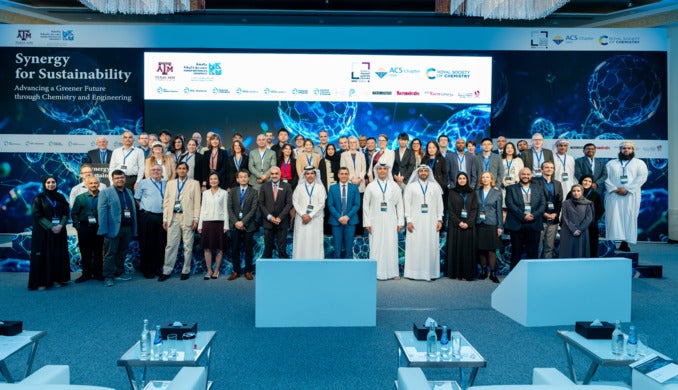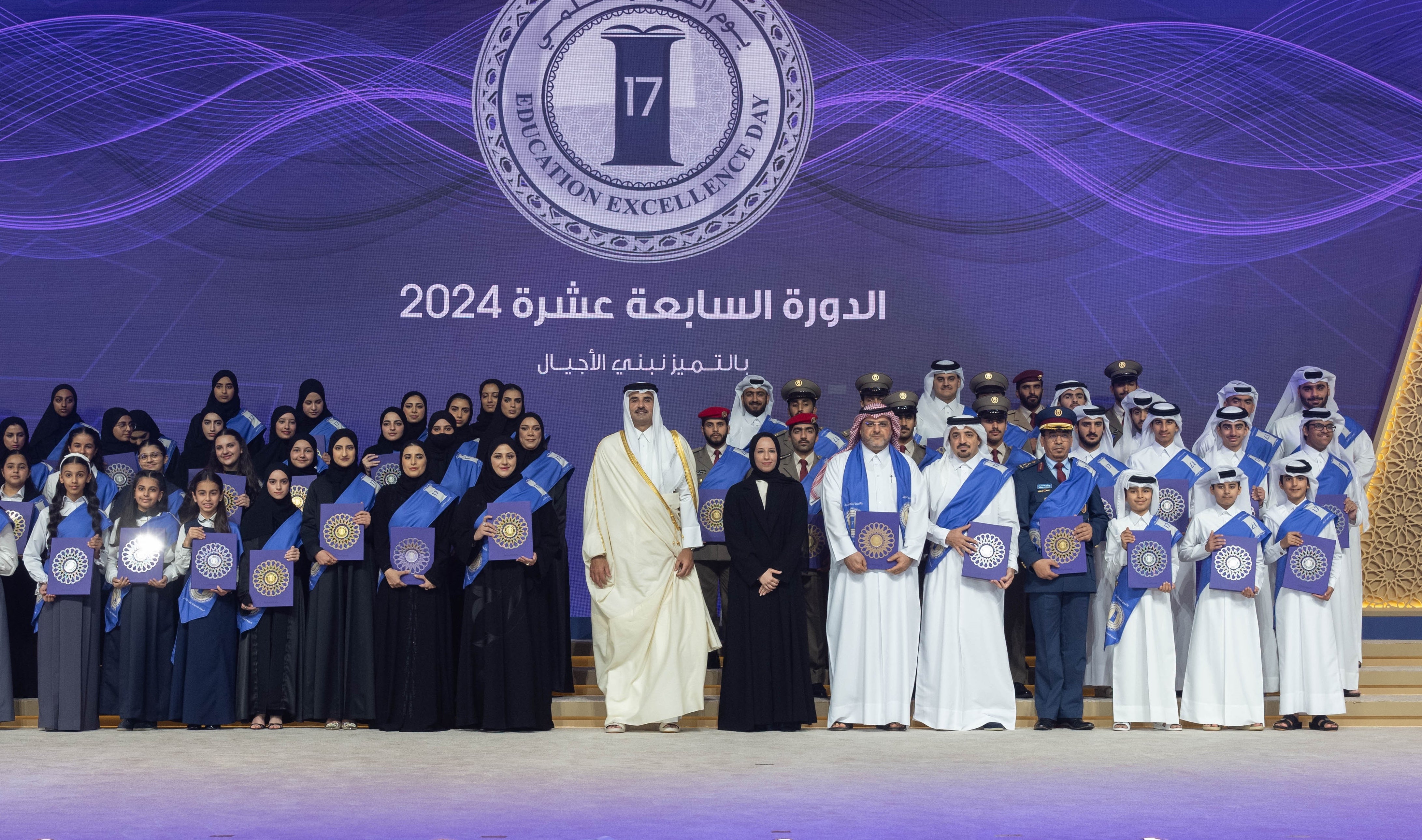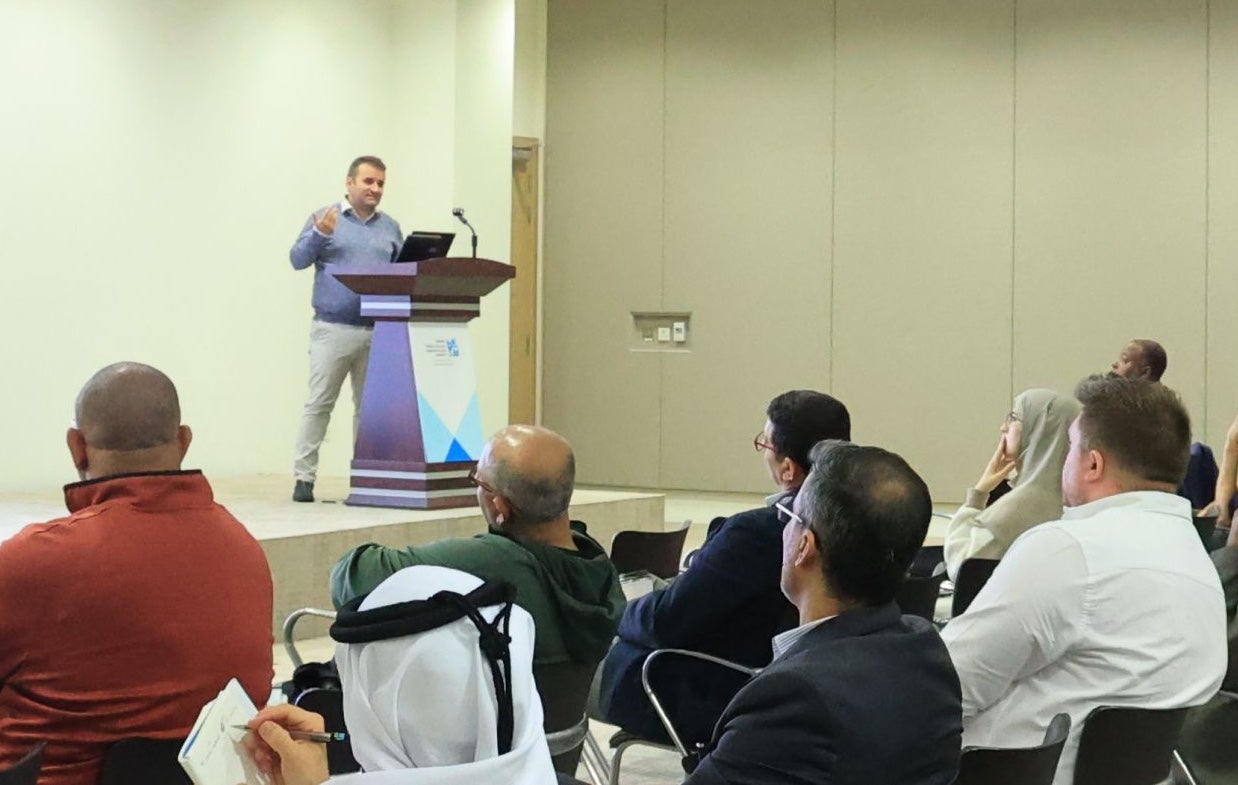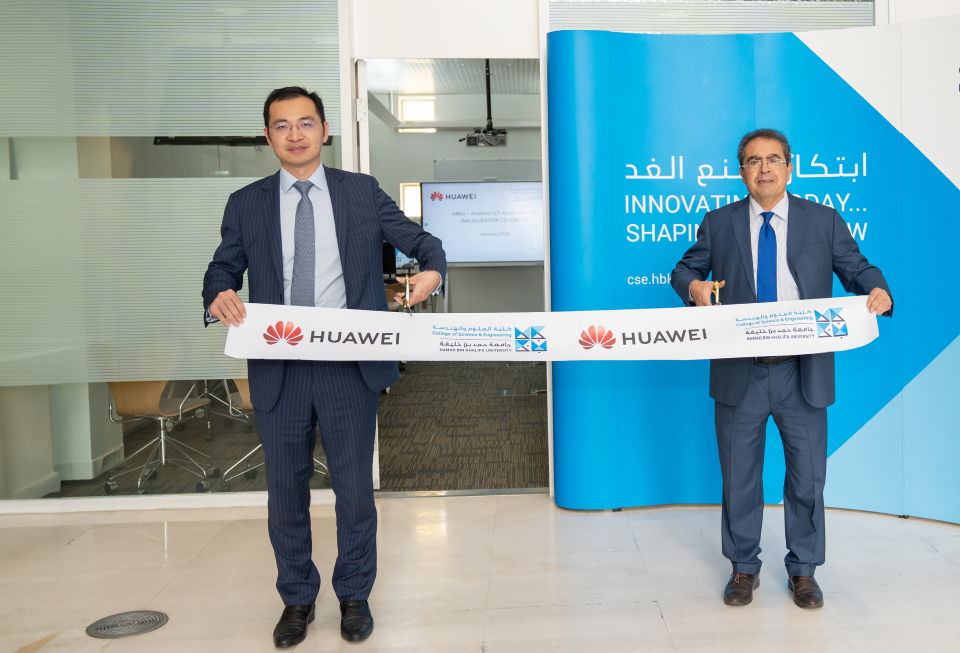
HBKU Logistics Degrees Support Qatar’s Ambitions as a Global Hub

Effective logistics management is a strategic capability imperative for the economic prosperity of a country. We have only to examine Qatar as an example, and its experience of having to rely heavily on its logistical capabilities in the wake of an illegal blockade imposed on the state in June 2017. Without a best-in-class airline and a best-practice airport, the population in Qatar could not have had access to much-needed supplies in the immediate aftermath of the blockade on air, land, and maritime transportation.
In tackling the crisis, Qatar Airways and Hamad International Airport had to ensure no disruption to the flow of passengers while managing a massive spike in the inflow of goods entering the country from all over the world with little prior notice.
Qatar Airways Cargo did exceptionally well in mitigating the situation with the efficient and effective management of transportation, storage, and handling capacities. The success in managing the situation was also owing to thorough coordination that required overwhelming flexibility to adjust to unforeseeable challenges, ensuring Qatar’s resilience from a logistical standpoint.
Robust airline and airport infrastructure are just one facet of Qatar’s strong logistical capabilities. Today, the country aspires to leverage its geo-strategic position to become a global hub for air and maritime transportation. The nation’s capital Doha is a future showcase for the most innovative mobility concepts known today with autonomous mobility concepts for integrated road and air transportation being developed.
Whereas Boston and Singapore are centers for road-based autonomous mobility, and Germany’s banking hub Frankfurt aims to become a center for air-based autonomous mobility, Qatar’s Ministry of Transport and Communications (MoTC) is pioneering in research for an integrated mobility concept that combines autonomous road and air transportation technology – an unprecedented endeavor worldwide.
To this end, MoTC has launched TASMU Smart Qatar – an innovative initiative aimed at strengthening the country’s development of a leading digital society of the future. In the coming years, as the implementation of new logistical projects rolls out, investments in logistics are expected to surpass 10 percent of the nation’s Gross Domestic Product (GDP).
Logistics and supply chain management are the backbone of any country’s business and trade. Strategic logistics capability is at the heart of a nation’s economic prosperity. One need only consider Qatar’s LNG tanker fleet and Mwani Qatar, the company managing Hamad Port, as further examples.
To align and support this bright outlook, Hamad Bin Khalifa University (HBKU) has developed academic degrees in Logistics and Supply Chain Management (LSCM), leading to either a Master of Science degree or to a Doctor of Philosophy degree.
HBKU’s rigorous LSCM degrees support Qatar towards becoming a leading global logistical hub. Through the two degrees, HBKU is setting the stage of educating future leaders in logistics and supply chain management.
Currently, there are five professors working in the Engineering Management and Decision Sciences group – a new division within HBKU’s College of Science and Engineering (CSE), based in Qatar Foundation’s Education City. This division takes into consideration that almost all challenges in strategic logistics management deal with tackling complexity. Multidisciplinary approaches in academic research are required, and “multiversity” needs to be embraced to develop scientific solutions. In Qatar, the classical approaches of only optimizing within narrowly defined systems’ boundaries are likely to fall short. Thus, through HBKU’s programs, future leaders are also learning how to handle and manage complexity.
As Qatar pursues its logistics ambitions through innovative developments and equipping future leaders with the knowledge and know-how to manage a sector based on complexities, the country looks well on its way to becoming a world-class logistics hub, one that has already proven its capabilities.
With the swift adaptability and success in handling the blockade in 2017, business schools from across the globe are likely to adopt Qatar as an example of logistical triumph and use it as a benchmark for “logistical resilience management” in years to come.
Frank Himpel is a faculty member of the Engineering Management and Decision Sciences division at College of Science and Engineering at Hamad Bin Khalifa University in Qatar. Prior to moving to Qatar with his family in 2018, Frank served as a professor of business administration and logistics in Germany, where he also received his academic degrees. His research into aviation and air transportation management has taken him to several countries around the world.
Related News

Hamad Bin Khalifa University and Quantinuum Partner to Advance Quantum Computing in Qatar
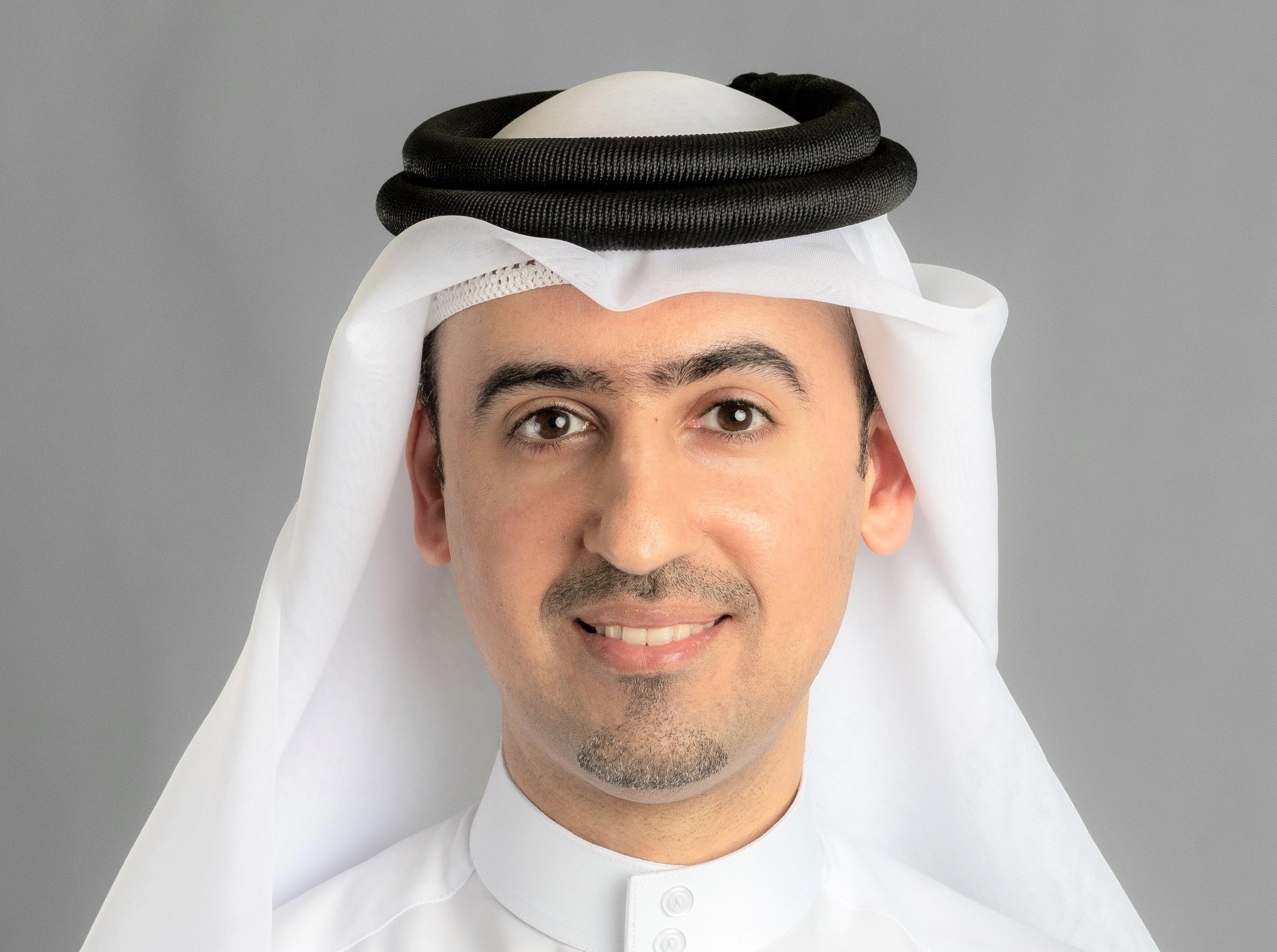
HBKU’s College of Science and Engineering Signs Memorandum of Understanding with NASA on Quantum Research and Education
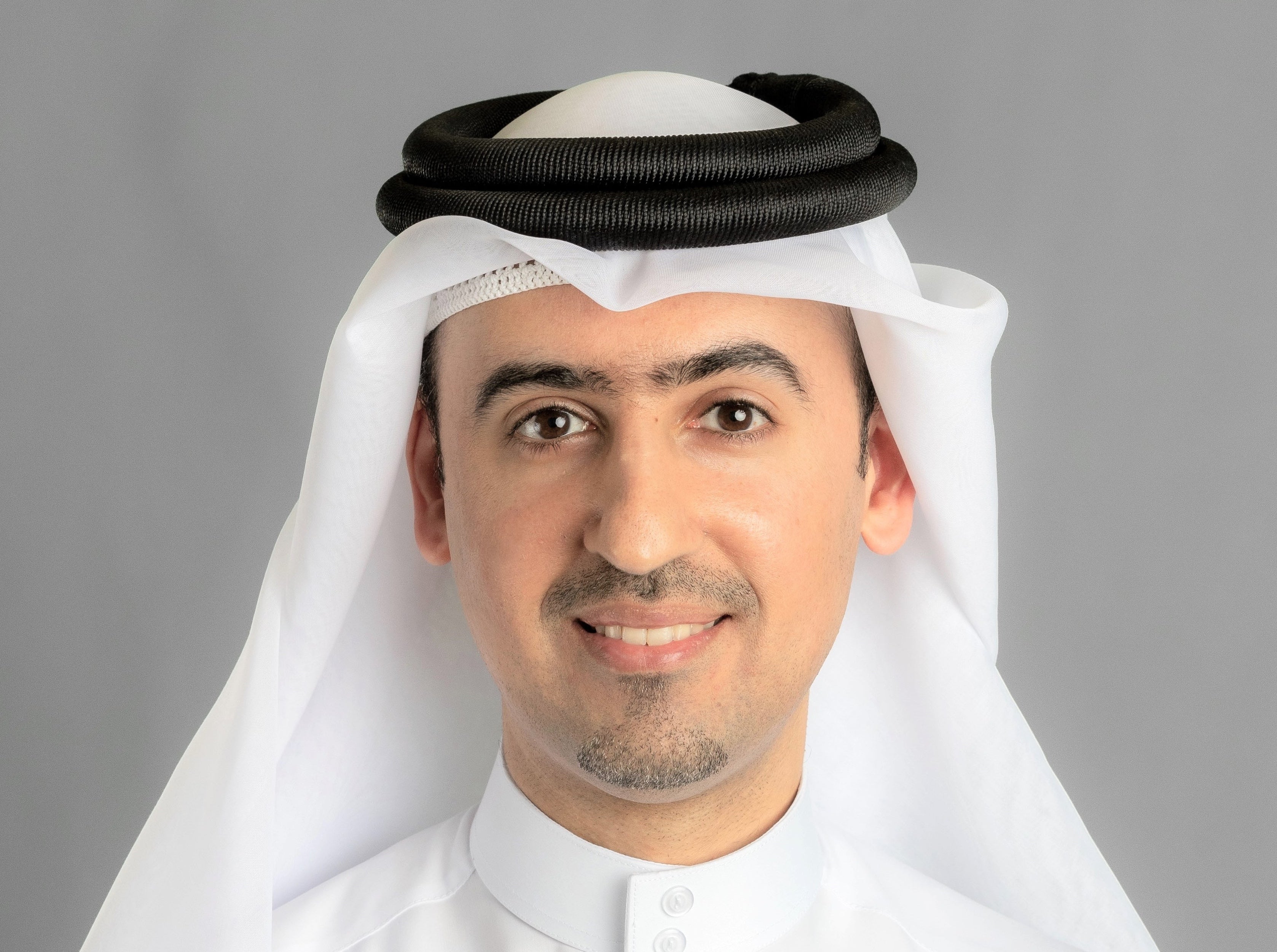
Q-CTRL and Hamad Bin Khalifa University’s College of Science and Engineering Partner to Equip the Next Generation Quantum Workforce in Qatar

QF’s Hamad Bin Khalifa University to Offer Undergraduate Engineering Programs in Education City
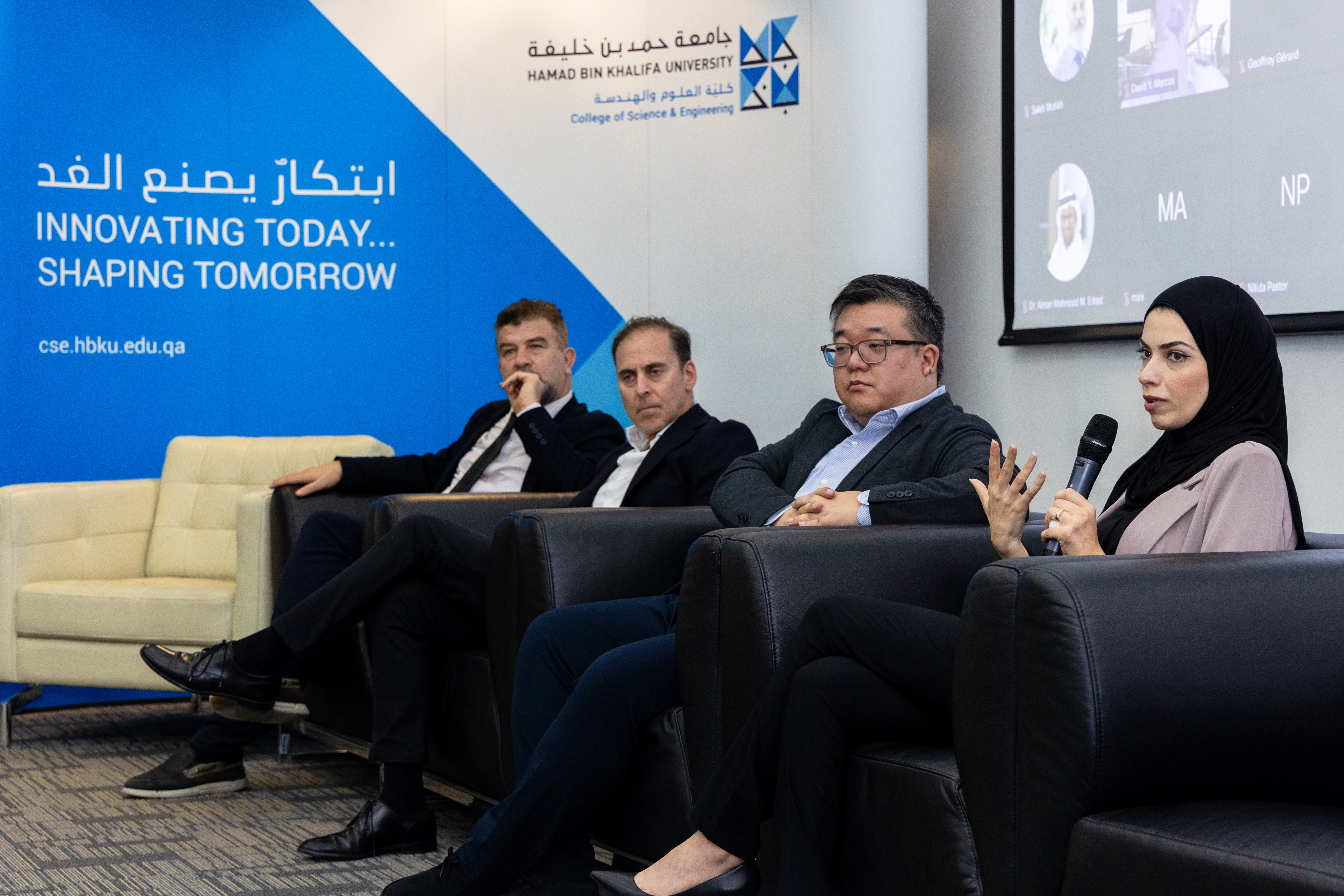
HBKU’s CSE and IE Impact Xcelerator Host Healthcare and Technology Collider Roundtable
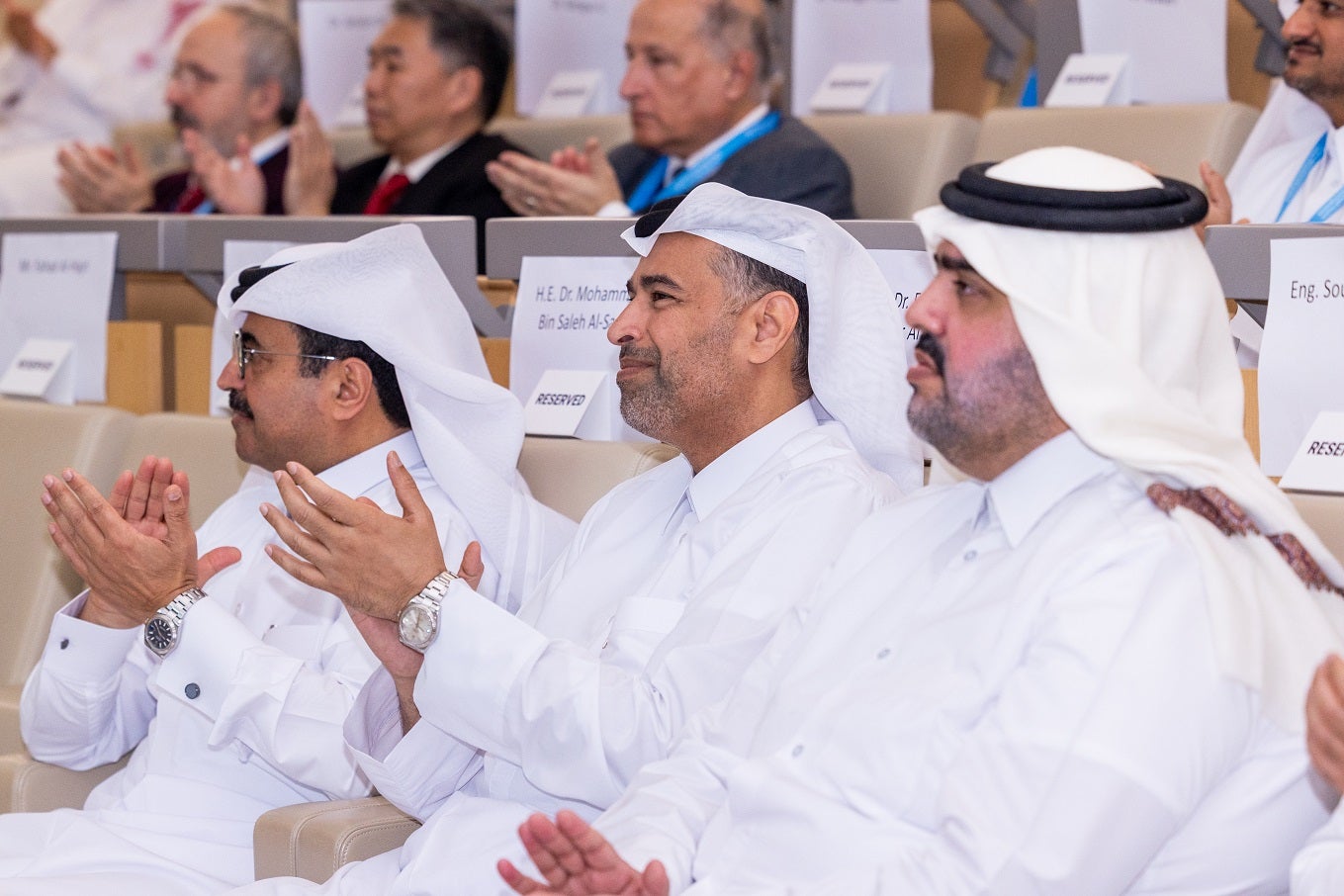
HBKU’s CSE Hosts 14th International Conference on Hydrogen Production (ICH2P-2023)

Xanadu and Hamad Bin Khalifa University (HBKU) Partner to Develop a Quantum Workforce

Xanadu and Hamad Bin Khalifa University (HBKU) Partner to Develop a Quantum Workforce

HBKU’s College of Science and Engineering Hosts 10th International Symposium on Networks, Computers and Communications

HBKU, NASEM, and Texas A&M University at Qatar Co-Host 9th Arab American Frontiers Symposium

HBKU’s College of Science and Engineering to Host 10th International Symposium on Networks, Computers and Communications

Hamad Bin Khalifa University and Quantinuum Partner to Advance Quantum Computing in Qatar

HBKU’s College of Science and Engineering Signs Memorandum of Understanding with NASA on Quantum Research and Education

Q-CTRL and Hamad Bin Khalifa University’s College of Science and Engineering Partner to Equip the Next Generation Quantum Workforce in Qatar

QF’s Hamad Bin Khalifa University to Offer Undergraduate Engineering Programs in Education City

HBKU’s CSE and IE Impact Xcelerator Host Healthcare and Technology Collider Roundtable

HBKU’s CSE Hosts 14th International Conference on Hydrogen Production (ICH2P-2023)

Xanadu and Hamad Bin Khalifa University (HBKU) Partner to Develop a Quantum Workforce

Xanadu and Hamad Bin Khalifa University (HBKU) Partner to Develop a Quantum Workforce

HBKU’s College of Science and Engineering Hosts 10th International Symposium on Networks, Computers and Communications

HBKU, NASEM, and Texas A&M University at Qatar Co-Host 9th Arab American Frontiers Symposium

HBKU’s College of Science and Engineering to Host 10th International Symposium on Networks, Computers and Communications

Hamad Bin Khalifa University and Quantinuum Partner to Advance Quantum Computing in Qatar

HBKU’s College of Science and Engineering Signs Memorandum of Understanding with NASA on Quantum Research and Education

Q-CTRL and Hamad Bin Khalifa University’s College of Science and Engineering Partner to Equip the Next Generation Quantum Workforce in Qatar

QF’s Hamad Bin Khalifa University to Offer Undergraduate Engineering Programs in Education City

HBKU’s CSE and IE Impact Xcelerator Host Healthcare and Technology Collider Roundtable

HBKU’s CSE Hosts 14th International Conference on Hydrogen Production (ICH2P-2023)

Xanadu and Hamad Bin Khalifa University (HBKU) Partner to Develop a Quantum Workforce

Xanadu and Hamad Bin Khalifa University (HBKU) Partner to Develop a Quantum Workforce

HBKU’s College of Science and Engineering Hosts 10th International Symposium on Networks, Computers and Communications

HBKU, NASEM, and Texas A&M University at Qatar Co-Host 9th Arab American Frontiers Symposium

HBKU’s College of Science and Engineering to Host 10th International Symposium on Networks, Computers and Communications

Hamad Bin Khalifa University and Quantinuum Partner to Advance Quantum Computing in Qatar

HBKU’s College of Science and Engineering Signs Memorandum of Understanding with NASA on Quantum Research and Education

Q-CTRL and Hamad Bin Khalifa University’s College of Science and Engineering Partner to Equip the Next Generation Quantum Workforce in Qatar

QF’s Hamad Bin Khalifa University to Offer Undergraduate Engineering Programs in Education City

HBKU’s CSE and IE Impact Xcelerator Host Healthcare and Technology Collider Roundtable

HBKU’s CSE Hosts 14th International Conference on Hydrogen Production (ICH2P-2023)

Xanadu and Hamad Bin Khalifa University (HBKU) Partner to Develop a Quantum Workforce

Xanadu and Hamad Bin Khalifa University (HBKU) Partner to Develop a Quantum Workforce

HBKU’s College of Science and Engineering Hosts 10th International Symposium on Networks, Computers and Communications

HBKU, NASEM, and Texas A&M University at Qatar Co-Host 9th Arab American Frontiers Symposium

HBKU’s College of Science and Engineering to Host 10th International Symposium on Networks, Computers and Communications

Hamad Bin Khalifa University and Quantinuum Partner to Advance Quantum Computing in Qatar

HBKU’s College of Science and Engineering Signs Memorandum of Understanding with NASA on Quantum Research and Education

Q-CTRL and Hamad Bin Khalifa University’s College of Science and Engineering Partner to Equip the Next Generation Quantum Workforce in Qatar

QF’s Hamad Bin Khalifa University to Offer Undergraduate Engineering Programs in Education City

HBKU’s CSE and IE Impact Xcelerator Host Healthcare and Technology Collider Roundtable

HBKU’s CSE Hosts 14th International Conference on Hydrogen Production (ICH2P-2023)

Xanadu and Hamad Bin Khalifa University (HBKU) Partner to Develop a Quantum Workforce

Xanadu and Hamad Bin Khalifa University (HBKU) Partner to Develop a Quantum Workforce

HBKU’s College of Science and Engineering Hosts 10th International Symposium on Networks, Computers and Communications

HBKU, NASEM, and Texas A&M University at Qatar Co-Host 9th Arab American Frontiers Symposium

HBKU’s College of Science and Engineering to Host 10th International Symposium on Networks, Computers and Communications

Hamad Bin Khalifa University and Quantinuum Partner to Advance Quantum Computing in Qatar

HBKU’s College of Science and Engineering Signs Memorandum of Understanding with NASA on Quantum Research and Education

Q-CTRL and Hamad Bin Khalifa University’s College of Science and Engineering Partner to Equip the Next Generation Quantum Workforce in Qatar

QF’s Hamad Bin Khalifa University to Offer Undergraduate Engineering Programs in Education City

HBKU’s CSE and IE Impact Xcelerator Host Healthcare and Technology Collider Roundtable

HBKU’s CSE Hosts 14th International Conference on Hydrogen Production (ICH2P-2023)

Xanadu and Hamad Bin Khalifa University (HBKU) Partner to Develop a Quantum Workforce

Xanadu and Hamad Bin Khalifa University (HBKU) Partner to Develop a Quantum Workforce

HBKU’s College of Science and Engineering Hosts 10th International Symposium on Networks, Computers and Communications

HBKU, NASEM, and Texas A&M University at Qatar Co-Host 9th Arab American Frontiers Symposium

HBKU’s College of Science and Engineering to Host 10th International Symposium on Networks, Computers and Communications

Hamad Bin Khalifa University and Quantinuum Partner to Advance Quantum Computing in Qatar

HBKU’s College of Science and Engineering Signs Memorandum of Understanding with NASA on Quantum Research and Education

Q-CTRL and Hamad Bin Khalifa University’s College of Science and Engineering Partner to Equip the Next Generation Quantum Workforce in Qatar

QF’s Hamad Bin Khalifa University to Offer Undergraduate Engineering Programs in Education City

HBKU’s CSE and IE Impact Xcelerator Host Healthcare and Technology Collider Roundtable

HBKU’s CSE Hosts 14th International Conference on Hydrogen Production (ICH2P-2023)

Xanadu and Hamad Bin Khalifa University (HBKU) Partner to Develop a Quantum Workforce

Xanadu and Hamad Bin Khalifa University (HBKU) Partner to Develop a Quantum Workforce

HBKU’s College of Science and Engineering Hosts 10th International Symposium on Networks, Computers and Communications

HBKU, NASEM, and Texas A&M University at Qatar Co-Host 9th Arab American Frontiers Symposium

HBKU’s College of Science and Engineering to Host 10th International Symposium on Networks, Computers and Communications

Hamad Bin Khalifa University and Quantinuum Partner to Advance Quantum Computing in Qatar

HBKU’s College of Science and Engineering Signs Memorandum of Understanding with NASA on Quantum Research and Education

Q-CTRL and Hamad Bin Khalifa University’s College of Science and Engineering Partner to Equip the Next Generation Quantum Workforce in Qatar

QF’s Hamad Bin Khalifa University to Offer Undergraduate Engineering Programs in Education City

HBKU’s CSE and IE Impact Xcelerator Host Healthcare and Technology Collider Roundtable

HBKU’s CSE Hosts 14th International Conference on Hydrogen Production (ICH2P-2023)

Xanadu and Hamad Bin Khalifa University (HBKU) Partner to Develop a Quantum Workforce

Xanadu and Hamad Bin Khalifa University (HBKU) Partner to Develop a Quantum Workforce

HBKU’s College of Science and Engineering Hosts 10th International Symposium on Networks, Computers and Communications

HBKU, NASEM, and Texas A&M University at Qatar Co-Host 9th Arab American Frontiers Symposium

HBKU’s College of Science and Engineering to Host 10th International Symposium on Networks, Computers and Communications

Hamad Bin Khalifa University and Quantinuum Partner to Advance Quantum Computing in Qatar

HBKU’s College of Science and Engineering Signs Memorandum of Understanding with NASA on Quantum Research and Education

Q-CTRL and Hamad Bin Khalifa University’s College of Science and Engineering Partner to Equip the Next Generation Quantum Workforce in Qatar

QF’s Hamad Bin Khalifa University to Offer Undergraduate Engineering Programs in Education City

HBKU’s CSE and IE Impact Xcelerator Host Healthcare and Technology Collider Roundtable

HBKU’s CSE Hosts 14th International Conference on Hydrogen Production (ICH2P-2023)

Xanadu and Hamad Bin Khalifa University (HBKU) Partner to Develop a Quantum Workforce

Xanadu and Hamad Bin Khalifa University (HBKU) Partner to Develop a Quantum Workforce

HBKU’s College of Science and Engineering Hosts 10th International Symposium on Networks, Computers and Communications

HBKU, NASEM, and Texas A&M University at Qatar Co-Host 9th Arab American Frontiers Symposium

HBKU’s College of Science and Engineering to Host 10th International Symposium on Networks, Computers and Communications

Hamad Bin Khalifa University and Quantinuum Partner to Advance Quantum Computing in Qatar

HBKU’s College of Science and Engineering Signs Memorandum of Understanding with NASA on Quantum Research and Education

Q-CTRL and Hamad Bin Khalifa University’s College of Science and Engineering Partner to Equip the Next Generation Quantum Workforce in Qatar

QF’s Hamad Bin Khalifa University to Offer Undergraduate Engineering Programs in Education City

HBKU’s CSE and IE Impact Xcelerator Host Healthcare and Technology Collider Roundtable

HBKU’s CSE Hosts 14th International Conference on Hydrogen Production (ICH2P-2023)

Xanadu and Hamad Bin Khalifa University (HBKU) Partner to Develop a Quantum Workforce

Xanadu and Hamad Bin Khalifa University (HBKU) Partner to Develop a Quantum Workforce

HBKU’s College of Science and Engineering Hosts 10th International Symposium on Networks, Computers and Communications

HBKU, NASEM, and Texas A&M University at Qatar Co-Host 9th Arab American Frontiers Symposium

HBKU’s College of Science and Engineering to Host 10th International Symposium on Networks, Computers and Communications

Hamad Bin Khalifa University and Quantinuum Partner to Advance Quantum Computing in Qatar

HBKU’s College of Science and Engineering Signs Memorandum of Understanding with NASA on Quantum Research and Education

Q-CTRL and Hamad Bin Khalifa University’s College of Science and Engineering Partner to Equip the Next Generation Quantum Workforce in Qatar

QF’s Hamad Bin Khalifa University to Offer Undergraduate Engineering Programs in Education City

HBKU’s CSE and IE Impact Xcelerator Host Healthcare and Technology Collider Roundtable

HBKU’s CSE Hosts 14th International Conference on Hydrogen Production (ICH2P-2023)

Xanadu and Hamad Bin Khalifa University (HBKU) Partner to Develop a Quantum Workforce

Xanadu and Hamad Bin Khalifa University (HBKU) Partner to Develop a Quantum Workforce

HBKU’s College of Science and Engineering Hosts 10th International Symposium on Networks, Computers and Communications

HBKU, NASEM, and Texas A&M University at Qatar Co-Host 9th Arab American Frontiers Symposium

HBKU’s College of Science and Engineering to Host 10th International Symposium on Networks, Computers and Communications

Hamad Bin Khalifa University and Quantinuum Partner to Advance Quantum Computing in Qatar

HBKU’s College of Science and Engineering Signs Memorandum of Understanding with NASA on Quantum Research and Education

Q-CTRL and Hamad Bin Khalifa University’s College of Science and Engineering Partner to Equip the Next Generation Quantum Workforce in Qatar

QF’s Hamad Bin Khalifa University to Offer Undergraduate Engineering Programs in Education City

HBKU’s CSE and IE Impact Xcelerator Host Healthcare and Technology Collider Roundtable

HBKU’s CSE Hosts 14th International Conference on Hydrogen Production (ICH2P-2023)

Xanadu and Hamad Bin Khalifa University (HBKU) Partner to Develop a Quantum Workforce

Xanadu and Hamad Bin Khalifa University (HBKU) Partner to Develop a Quantum Workforce

HBKU’s College of Science and Engineering Hosts 10th International Symposium on Networks, Computers and Communications

HBKU, NASEM, and Texas A&M University at Qatar Co-Host 9th Arab American Frontiers Symposium

HBKU’s College of Science and Engineering to Host 10th International Symposium on Networks, Computers and Communications

Hamad Bin Khalifa University and Quantinuum Partner to Advance Quantum Computing in Qatar

HBKU’s College of Science and Engineering Signs Memorandum of Understanding with NASA on Quantum Research and Education

Q-CTRL and Hamad Bin Khalifa University’s College of Science and Engineering Partner to Equip the Next Generation Quantum Workforce in Qatar

QF’s Hamad Bin Khalifa University to Offer Undergraduate Engineering Programs in Education City

HBKU’s CSE and IE Impact Xcelerator Host Healthcare and Technology Collider Roundtable

HBKU’s CSE Hosts 14th International Conference on Hydrogen Production (ICH2P-2023)

Xanadu and Hamad Bin Khalifa University (HBKU) Partner to Develop a Quantum Workforce

Xanadu and Hamad Bin Khalifa University (HBKU) Partner to Develop a Quantum Workforce

HBKU’s College of Science and Engineering Hosts 10th International Symposium on Networks, Computers and Communications

HBKU, NASEM, and Texas A&M University at Qatar Co-Host 9th Arab American Frontiers Symposium

HBKU’s College of Science and Engineering to Host 10th International Symposium on Networks, Computers and Communications

Hamad Bin Khalifa University and Quantinuum Partner to Advance Quantum Computing in Qatar

HBKU’s College of Science and Engineering Signs Memorandum of Understanding with NASA on Quantum Research and Education

Q-CTRL and Hamad Bin Khalifa University’s College of Science and Engineering Partner to Equip the Next Generation Quantum Workforce in Qatar

QF’s Hamad Bin Khalifa University to Offer Undergraduate Engineering Programs in Education City

HBKU’s CSE and IE Impact Xcelerator Host Healthcare and Technology Collider Roundtable

HBKU’s CSE Hosts 14th International Conference on Hydrogen Production (ICH2P-2023)

Xanadu and Hamad Bin Khalifa University (HBKU) Partner to Develop a Quantum Workforce

Xanadu and Hamad Bin Khalifa University (HBKU) Partner to Develop a Quantum Workforce

HBKU’s College of Science and Engineering Hosts 10th International Symposium on Networks, Computers and Communications

HBKU, NASEM, and Texas A&M University at Qatar Co-Host 9th Arab American Frontiers Symposium

HBKU’s College of Science and Engineering to Host 10th International Symposium on Networks, Computers and Communications

Hamad Bin Khalifa University and Quantinuum Partner to Advance Quantum Computing in Qatar

HBKU’s College of Science and Engineering Signs Memorandum of Understanding with NASA on Quantum Research and Education

Q-CTRL and Hamad Bin Khalifa University’s College of Science and Engineering Partner to Equip the Next Generation Quantum Workforce in Qatar

QF’s Hamad Bin Khalifa University to Offer Undergraduate Engineering Programs in Education City

HBKU’s CSE and IE Impact Xcelerator Host Healthcare and Technology Collider Roundtable

HBKU’s CSE Hosts 14th International Conference on Hydrogen Production (ICH2P-2023)

Xanadu and Hamad Bin Khalifa University (HBKU) Partner to Develop a Quantum Workforce

Xanadu and Hamad Bin Khalifa University (HBKU) Partner to Develop a Quantum Workforce

HBKU’s College of Science and Engineering Hosts 10th International Symposium on Networks, Computers and Communications

HBKU, NASEM, and Texas A&M University at Qatar Co-Host 9th Arab American Frontiers Symposium

HBKU’s College of Science and Engineering to Host 10th International Symposium on Networks, Computers and Communications

Hamad Bin Khalifa University and Quantinuum Partner to Advance Quantum Computing in Qatar

HBKU’s College of Science and Engineering Signs Memorandum of Understanding with NASA on Quantum Research and Education

Q-CTRL and Hamad Bin Khalifa University’s College of Science and Engineering Partner to Equip the Next Generation Quantum Workforce in Qatar

QF’s Hamad Bin Khalifa University to Offer Undergraduate Engineering Programs in Education City

HBKU’s CSE and IE Impact Xcelerator Host Healthcare and Technology Collider Roundtable

HBKU’s CSE Hosts 14th International Conference on Hydrogen Production (ICH2P-2023)

Xanadu and Hamad Bin Khalifa University (HBKU) Partner to Develop a Quantum Workforce

Xanadu and Hamad Bin Khalifa University (HBKU) Partner to Develop a Quantum Workforce

HBKU’s College of Science and Engineering Hosts 10th International Symposium on Networks, Computers and Communications

HBKU, NASEM, and Texas A&M University at Qatar Co-Host 9th Arab American Frontiers Symposium

HBKU’s College of Science and Engineering to Host 10th International Symposium on Networks, Computers and Communications

Hamad Bin Khalifa University and Quantinuum Partner to Advance Quantum Computing in Qatar

HBKU’s College of Science and Engineering Signs Memorandum of Understanding with NASA on Quantum Research and Education

Q-CTRL and Hamad Bin Khalifa University’s College of Science and Engineering Partner to Equip the Next Generation Quantum Workforce in Qatar

QF’s Hamad Bin Khalifa University to Offer Undergraduate Engineering Programs in Education City

HBKU’s CSE and IE Impact Xcelerator Host Healthcare and Technology Collider Roundtable

HBKU’s CSE Hosts 14th International Conference on Hydrogen Production (ICH2P-2023)

Xanadu and Hamad Bin Khalifa University (HBKU) Partner to Develop a Quantum Workforce

Xanadu and Hamad Bin Khalifa University (HBKU) Partner to Develop a Quantum Workforce

HBKU’s College of Science and Engineering Hosts 10th International Symposium on Networks, Computers and Communications

HBKU, NASEM, and Texas A&M University at Qatar Co-Host 9th Arab American Frontiers Symposium

HBKU’s College of Science and Engineering to Host 10th International Symposium on Networks, Computers and Communications

Hamad Bin Khalifa University and Quantinuum Partner to Advance Quantum Computing in Qatar

HBKU’s College of Science and Engineering Signs Memorandum of Understanding with NASA on Quantum Research and Education

Q-CTRL and Hamad Bin Khalifa University’s College of Science and Engineering Partner to Equip the Next Generation Quantum Workforce in Qatar

QF’s Hamad Bin Khalifa University to Offer Undergraduate Engineering Programs in Education City

HBKU’s CSE and IE Impact Xcelerator Host Healthcare and Technology Collider Roundtable

HBKU’s CSE Hosts 14th International Conference on Hydrogen Production (ICH2P-2023)

Xanadu and Hamad Bin Khalifa University (HBKU) Partner to Develop a Quantum Workforce

Xanadu and Hamad Bin Khalifa University (HBKU) Partner to Develop a Quantum Workforce

HBKU’s College of Science and Engineering Hosts 10th International Symposium on Networks, Computers and Communications

HBKU, NASEM, and Texas A&M University at Qatar Co-Host 9th Arab American Frontiers Symposium

HBKU’s College of Science and Engineering to Host 10th International Symposium on Networks, Computers and Communications

Hamad Bin Khalifa University and Quantinuum Partner to Advance Quantum Computing in Qatar

HBKU’s College of Science and Engineering Signs Memorandum of Understanding with NASA on Quantum Research and Education

Q-CTRL and Hamad Bin Khalifa University’s College of Science and Engineering Partner to Equip the Next Generation Quantum Workforce in Qatar

QF’s Hamad Bin Khalifa University to Offer Undergraduate Engineering Programs in Education City

HBKU’s CSE and IE Impact Xcelerator Host Healthcare and Technology Collider Roundtable

HBKU’s CSE Hosts 14th International Conference on Hydrogen Production (ICH2P-2023)

Xanadu and Hamad Bin Khalifa University (HBKU) Partner to Develop a Quantum Workforce

Xanadu and Hamad Bin Khalifa University (HBKU) Partner to Develop a Quantum Workforce

HBKU’s College of Science and Engineering Hosts 10th International Symposium on Networks, Computers and Communications

HBKU, NASEM, and Texas A&M University at Qatar Co-Host 9th Arab American Frontiers Symposium

HBKU’s College of Science and Engineering to Host 10th International Symposium on Networks, Computers and Communications

Hamad Bin Khalifa University and Quantinuum Partner to Advance Quantum Computing in Qatar

HBKU’s College of Science and Engineering Signs Memorandum of Understanding with NASA on Quantum Research and Education

Q-CTRL and Hamad Bin Khalifa University’s College of Science and Engineering Partner to Equip the Next Generation Quantum Workforce in Qatar

QF’s Hamad Bin Khalifa University to Offer Undergraduate Engineering Programs in Education City

HBKU’s CSE and IE Impact Xcelerator Host Healthcare and Technology Collider Roundtable

HBKU’s CSE Hosts 14th International Conference on Hydrogen Production (ICH2P-2023)

Xanadu and Hamad Bin Khalifa University (HBKU) Partner to Develop a Quantum Workforce

Xanadu and Hamad Bin Khalifa University (HBKU) Partner to Develop a Quantum Workforce

HBKU’s College of Science and Engineering Hosts 10th International Symposium on Networks, Computers and Communications

HBKU, NASEM, and Texas A&M University at Qatar Co-Host 9th Arab American Frontiers Symposium






